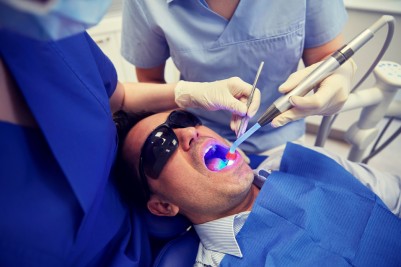Can dental fillings really be dangerous to your health?
 If you’re like most people, you occasionally go to the dentist and – every so often y0rou dentist tells you that you have a cavity. While a cavity is always “bad news”, it is usually never seen as a health crisis or life-threatening condition. On the contrary, cavities are accepted as an inconvenience and a small dental health issue that needs to be fixed. However, it is possible that the dental fillings being sued to repair your cavity does put you at risk.
If you’re like most people, you occasionally go to the dentist and – every so often y0rou dentist tells you that you have a cavity. While a cavity is always “bad news”, it is usually never seen as a health crisis or life-threatening condition. On the contrary, cavities are accepted as an inconvenience and a small dental health issue that needs to be fixed. However, it is possible that the dental fillings being sued to repair your cavity does put you at risk.
This article is not intended to cause unnecessary alarm. Rather, it is designed to share the basic facts and insight into fillings that everyone should know.
Are there different types of fillings?
Yes. These are two types of fillings hat his article will address – BPA filling and silver fillings. There are risks associated with these types of fillings. But rather than just report the risks, you’ll also be informed of another option to BPAs and silver fillings.
What is a silver filling? What is a BPA filling? What are their risks?
Actually, the name silver is a bit of a misrepresentation. They’re not composed of silver; they are made of mercury. There are many dentist offices that have ceased using these fillings since they are associated with toxicity. This is related to the mercury.
Mercury is risky for your health. Vapor can move through the filling and find its way to a person’s nervous system which can impact a person neurologically, psychologically, and immunologically. These vapors can get “aroused” when the teeth are brushed or by simple actions like drinking and eating. Basically, when a person engages in any of these activities, the vapors are entering a person’s’ system.
If you know for a fact that you do not have silver fillings, don’t relax too much. Composite fillings which are composed of dental resin also have BPA in them. This means that BPS fillings release toxins and behave similarly to silver fillings.
Is there a safer option for silver and BPA fillings?
Yes. There is a composite BPA free filling that some dental offices are using. You can’t assume that just because you have a composite filling, it’s free of BPA. BPA refers to a disruptor that has the capability to interfere with hormones that are produced by your body. Even though the level of BPA in fillings is very low, you are recommended to go with an option that is free of all BPA. You don’t want your body to be at risk of BPA exposure.
It is completely within your rights – and it is practical – to make the decision to no longer accept fillings with BPA and seek out a dental practice that uses dental fillings that are BPA free composite. This may be a difficult health decision to make because you may find that you have to seek another dental office that practices more holistic dental care.
For more information regarding anything related to your oral health, give Dr. Apsey of Smile Brightly Dental a call today! We are located in Warren, MI and we can be reached at 586-573-7700!
